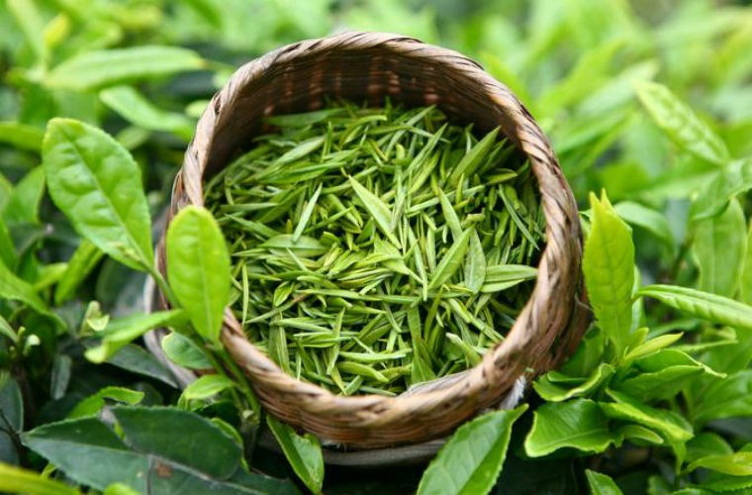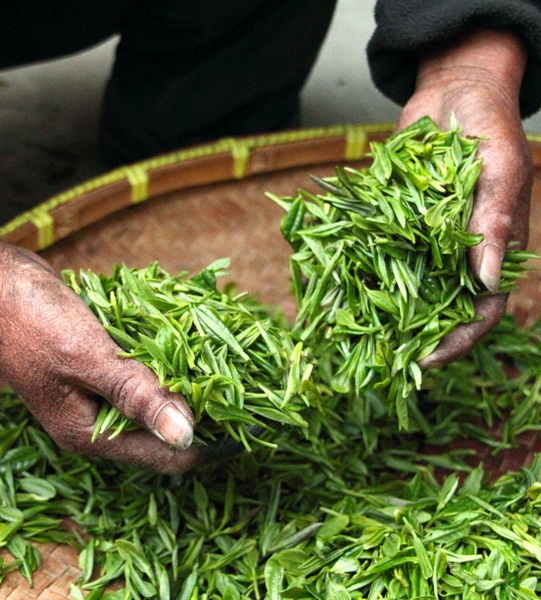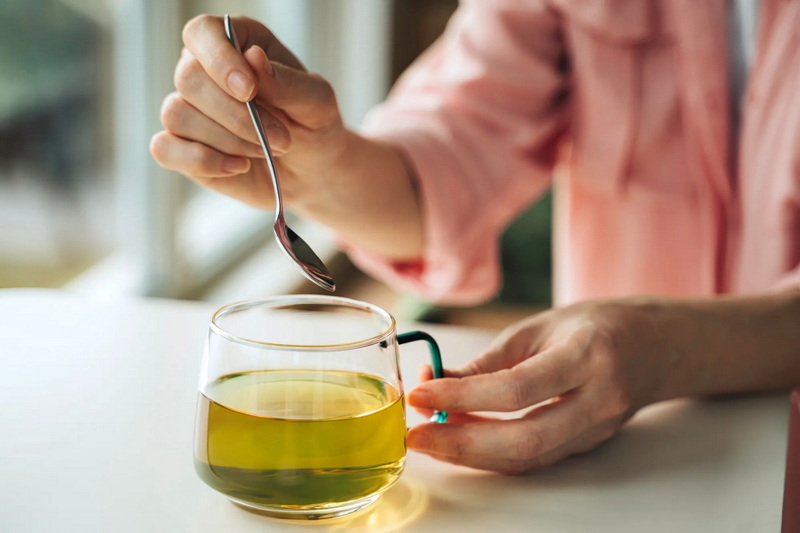Content Menu
● Understanding Green Tea Leaf Extract
● Caffeine Content in Green Tea Leaf Extract
>> Comparison of Caffeine in Different Beverages
● Health Benefits of Green Tea Leaf Extract
● Potential Side Effects
● How to Incorporate Green Tea Leaf Extract into Your Diet
● Comparing Green Tea Leaf Extract with Other Sources of Caffeine
● Conclusion
● FAQs
>> 1. How much caffeine is in green tea leaf extract compared to coffee?
>> 2. Can I take green tea leaf extract if I'm sensitive to caffeine?
>> 3. What are the main health benefits of green tea leaf extract?
>> 4. Are there any risks associated with taking green tea leaf extract?
>> 5. How should I take green tea leaf extract for optimal benefits?
● Citations:
Green tea, derived from the leaves of the Camellia sinensis plant, has gained immense popularity due to its numerous health benefits. One common question that arises is whether green tea leaf extract contains caffeine. This article delves into the relationship between green tea extract and caffeine, exploring its composition, health benefits, potential side effects, and how it compares to other caffeinated beverages.

Understanding Green Tea Leaf Extract
Green tea leaf extract is a concentrated form of green tea that retains most of the beneficial compounds found in the leaves. It is rich in polyphenols, particularly catechins, which are powerful antioxidants. Among these catechins, epigallocatechin gallate (EGCG) is the most studied for its health benefits.
Composition of Green Tea Leaf Extract:
- Caffeine: Green tea contains caffeine, though typically less than coffee. An 8-ounce cup of green tea generally contains about 30-50 mg of caffeine, while the same amount of coffee contains approximately 100-200 mg.
- Catechins: These antioxidants are responsible for many of green tea's health benefits. They help combat oxidative stress and inflammation in the body.
- L-theanine: This amino acid promotes relaxation without sedation and works synergistically with caffeine to enhance cognitive function and reduce anxiety.
Caffeine Content in Green Tea Leaf Extract
Yes, green tea leaf extract does contain caffeine. The amount can vary significantly based on the extraction method and concentration of the product. Generally, a typical serving of green tea extract can contain anywhere from 30 mg to over 600 mg of caffeine per dose, depending on how it's processed.
Comparison of Caffeine in Different Beverages
| Beverage | Caffeine Content (per 8 oz) |
| Green Tea | 30-50 mg |
| Black Tea | 40-70 mg |
| Coffee | 95-200 mg |
| Green Tea Extract | 50-600 mg |
The caffeine in green tea is released more slowly than that in coffee due to the presence of L-theanine, which can lead to a more stable energy boost without the jitters often associated with coffee consumption.
Health Benefits of Green Tea Leaf Extract
Green tea leaf extract offers a myriad of health benefits due to its unique composition:
- Weight Loss: Both caffeine and EGCG have been shown to enhance fat oxidation and increase metabolic rate, potentially aiding in weight loss efforts. Research indicates that consuming green tea can increase energy expenditure and fat burning during exercise.
- Heart Health: Regular consumption may help lower cholesterol levels and improve overall cardiovascular health by reducing blood pressure and improving blood vessel function. Studies have shown that individuals who regularly consume green tea have a lower risk of heart disease.
- Brain Health: The combination of caffeine and L-theanine can improve cognitive function, enhance memory, and protect against neurodegenerative diseases like Alzheimer's and Parkinson's. Some studies suggest that regular consumption may also reduce the risk of developing dementia.
- Antioxidant Properties: The high levels of catechins help combat oxidative stress in the body, which can reduce the risk of chronic diseases such as cancer. Antioxidants neutralize free radicals that can cause cellular damage.
- Anti-inflammatory Effects: Green tea extract may help reduce inflammation throughout the body, contributing to better overall health. Chronic inflammation is linked to various diseases, including diabetes and heart disease.
- Blood Sugar Regulation: Some studies suggest that green tea extract may improve insulin sensitivity and reduce blood sugar levels after meals. This effect can be particularly beneficial for individuals at risk for type 2 diabetes.

Potential Side Effects
While green tea leaf extract is generally considered safe for most people when consumed in moderation, there are potential side effects associated with excessive intake:
- Caffeine Sensitivity: Individuals sensitive to caffeine may experience anxiety, insomnia, or increased heart rate when consuming high doses of green tea extract. Symptoms can vary based on individual tolerance levels.
- Liver Damage: High doses (often from supplements rather than regular consumption) have been linked to liver toxicity in some cases. It's crucial to monitor intake and consult with a healthcare provider if considering high-dose supplements.
- Gastrointestinal Issues: Some users report stomach upset or nausea when taking concentrated extracts. This discomfort may be minimized by taking supplements with food or starting with lower doses.
How to Incorporate Green Tea Leaf Extract into Your Diet
Incorporating green tea leaf extract into your diet can be easy and beneficial:
- Supplements: Available in capsule or powder form, supplements offer a concentrated dose of green tea's beneficial compounds. Always follow dosage recommendations on the label or consult a healthcare professional.
- Beverages: Drinking brewed green tea is an excellent way to enjoy its benefits without the higher caffeine content found in extracts. You can enjoy it hot or iced, plain or flavored with lemon or honey.
- Smoothies: Adding powdered green tea extract (matcha) to smoothies not only enhances flavor but also boosts antioxidant content.
- Cooking: Use green tea powder as an ingredient in various recipes such as baked goods or salad dressings for added flavor and health benefits.
Comparing Green Tea Leaf Extract with Other Sources of Caffeine
When considering sources of caffeine, it's essential to understand how they compare not only in terms of caffeine content but also in their overall health impacts:
| Beverage | Caffeine Content (per serving) | Health Benefits |
| Green Tea | 30-50 mg | Antioxidants, heart health, weight management |
| Black Tea | 40-70 mg | Antioxidants, improved gut health |
| Coffee | 95-200 mg | Increased alertness, potential reduced risk of certain diseases |
| Energy Drinks | Varies widely | Quick energy boost but often high in sugar |
| Green Tea Extract | 50-600 mg | Concentrated antioxidants and metabolism support |
Green tea stands out due to its combination of caffeine with L-theanine, offering a more balanced energy boost compared to coffee or energy drinks that may lead to crashes later on.
Conclusion
In summary, green tea leaf extract does contain caffeine along with a host of beneficial compounds that contribute to its health-promoting properties. While it offers numerous advantages such as enhanced metabolism, improved mental clarity, antioxidant protection, and anti-inflammatory effects, it is essential to consume it wisely to avoid potential side effects.
For those looking to incorporate green tea extract into their routine for its health benefits, moderation is key. Always consult with a healthcare professional before starting any new supplement regimen.

FAQs
1. How much caffeine is in green tea leaf extract compared to coffee?
Green tea leaf extract typically contains between 30 mg and over 600 mg of caffeine per serving, while coffee usually contains about 95-200 mg per 8-ounce cup.
2. Can I take green tea leaf extract if I'm sensitive to caffeine?
If you are sensitive to caffeine, it's advisable to start with lower doses or consult a healthcare professional before using green tea leaf extract supplements.
3. What are the main health benefits of green tea leaf extract?
The main health benefits include weight loss support, improved heart health, enhanced brain function, powerful antioxidant properties, blood sugar regulation, and anti-inflammatory effects.
4. Are there any risks associated with taking green tea leaf extract?
Potential risks include liver damage from excessive doses, gastrointestinal issues, and symptoms related to caffeine sensitivity such as anxiety or insomnia.
5. How should I take green tea leaf extract for optimal benefits?
It's best taken with food at recommended doses (typically between 250–500 mg per day) to maximize absorption and minimize side effects.
Citations:
[1] https://www.healthline.com/nutrition/10-benefits-of-green-tea-extract
[2] https://www.urmc.rochester.edu/encyclopedia/content?contenttypeid=19&contentid=GreenTeaExtract
[3] https://www.truecitrus.com/blogs/tc/clean-caffeine-in-green-tea-vs-coffee
[4] https://www.alamy.com/stock-photo/green-tea-extract.html
[5] https://www.youtube.com/watch?v=7-trYY-b8XU
[6] https://www.youtube.com/watch?v=eMuE16vLV_s
[7] https://www.medicalnewstoday.com/articles/269538
[8] https://www.webmd.com/vitamins/ai/ingredientmono-960/green-tea
[9] https://www.sugimotousa.com/blog/green-tea-vs-coffee-everything-you-need-to-know
[10] https://www.freepik.com/free-photos-vectors/green-tea-extract
[11] https://www.healthline.com/nutrition/camellia-sinensis-leaf-extract






























